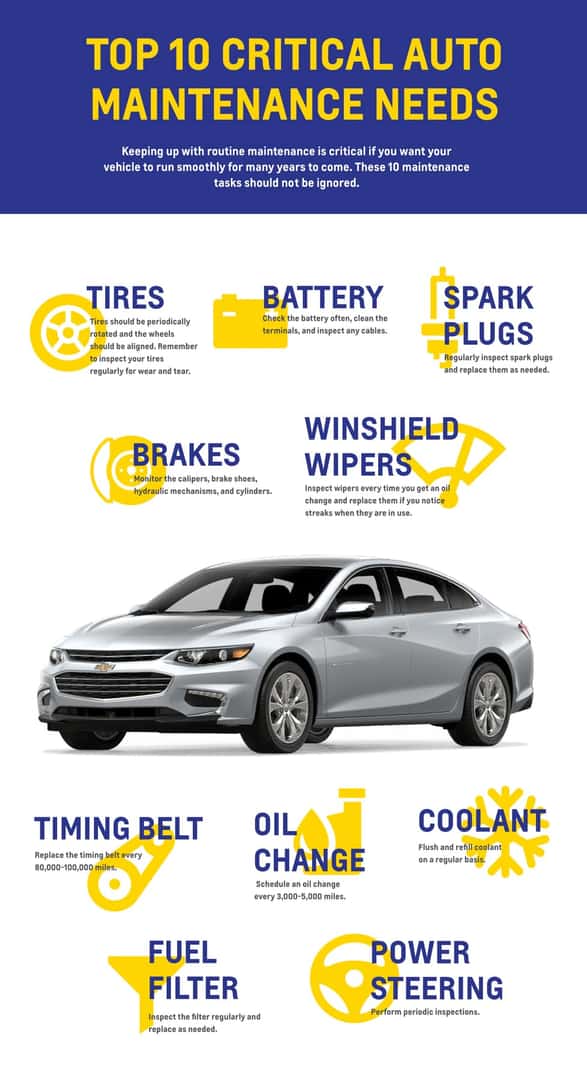Engine coolant needs periodic changes. It’s vital for your car’s health.
But why? Engine coolant, also known as antifreeze, keeps the engine from overheating. Over time, it loses effectiveness and can cause damage. Neglecting coolant changes can lead to costly repairs. Old coolant can become corrosive, damaging engine parts. Fresh coolant ensures the engine runs smoothly and prevents breakdowns.
Regular maintenance keeps the car in top shape and extends its life. In this blog, we’ll explore the reasons for changing engine coolant periodically. We’ll discuss the benefits, signs of old coolant, and how often you should change it. Let’s dive in and keep your engine purring like a kitten!

Credit: www.youtube.com
Importance Of Engine Coolant
Engine coolant plays a critical role in the health of your vehicle. It prevents the engine from overheating or freezing. This fluid keeps your engine running smoothly, especially in extreme temperatures. Regularly changing the engine coolant is essential for maintaining optimal performance.
Role In Engine Performance
Engine coolant regulates the temperature of your engine. It absorbs excess heat produced during combustion. This prevents the engine from overheating and causing damage. Without proper cooling, your engine may suffer from reduced efficiency. This can lead to costly repairs.
Impact On Engine Longevity
Old or dirty coolant can lead to corrosion inside the engine. Corrosion damages vital engine components. Fresh coolant contains additives that protect against rust and corrosion. By changing the coolant periodically, you extend the life of your engine. This simple maintenance step can save you money in the long run.
Preventing Overheating
Preventing overheating is a crucial aspect of vehicle maintenance. One effective way to achieve this is by changing engine coolant periodically. Fresh coolant plays a key role in regulating engine temperature and maintaining overall performance. Let’s explore how regular coolant changes can help in preventing overheating.
Heat Dissipation
Engine coolant helps dissipate heat from the engine. Old or contaminated coolant loses its effectiveness. This reduces its ability to keep the engine cool. Fresh coolant circulates better and absorbs heat more efficiently. It prevents the engine from reaching dangerous temperatures.
Avoiding Engine Damage
Overheating can cause severe engine damage. High temperatures can warp engine parts. It can also cause seals to fail. Periodic coolant changes ensure the engine stays within safe temperature limits. This reduces the risk of costly repairs and maintains engine health.
Corrosion Prevention
Engine coolant is vital for the health of your vehicle’s engine. Changing coolant periodically is crucial to prevent corrosion. Corrosion can damage engine components, leading to costly repairs. By keeping the coolant fresh, you protect your engine from rust and buildup.
Protecting Engine Components
Corrosion can eat away at engine parts. Vital components like the radiator, water pump, and hoses are at risk. Fresh coolant contains inhibitors that prevent this damage. These inhibitors form a protective barrier. This barrier keeps the parts safe from rust and decay.
Think of it as a shield for your engine. Without this shield, metal parts can weaken and fail. Regular coolant changes keep this protective layer strong. This ensures all parts work efficiently, avoiding breakdowns.
Extending Engine Life
A well-maintained engine lasts longer. Corrosion is a silent killer. It slowly damages parts over time. Changing coolant regularly stops this process. Clean coolant keeps everything running smoothly. This, in turn, extends the life of your engine.
Here are the benefits of regular coolant changes:
- Prevents rust and buildup
- Protects vital engine components
- Maintains engine efficiency
- Extends the overall life of the engine
- Reduces the risk of costly repairs
Regular maintenance is key to a healthy engine. Keeping the coolant fresh is a simple step. It offers significant long-term benefits. Don’t overlook this crucial aspect of car care.

Credit: www.libertyvillechevrolet.com
Maintaining Coolant Efficiency
Maintaining coolant efficiency is crucial for the longevity of your vehicle. Over time, engine coolant loses its effectiveness due to various factors. Regularly changing your coolant ensures your engine runs smoothly and stays protected from extreme temperatures.
Chemical Breakdown
Engine coolant is a mixture of water and chemicals, including antifreeze. These chemicals prevent the coolant from freezing and boiling. But over time, they degrade and lose their properties. This process is called chemical breakdown. When this happens, the coolant can no longer protect your engine effectively.
Old coolant can become acidic and start to corrode the engine parts. Corrosion can lead to leaks and damage. This is why it’s essential to change the coolant periodically.
Optimal Performance
For your vehicle to perform at its best, the coolant must be in good condition. Fresh coolant ensures the engine operates within the optimal temperature range. This prevents overheating and freezing, which can cause severe damage.
Using new coolant improves heat transfer. This means the engine can stay cool under heavy loads or in hot weather. It also helps in maintaining the right temperature in cold weather. This ensures that the engine starts easily and runs smoothly.
| Benefits of Changing Coolant |
|---|
| Prevents corrosion |
| Improves heat transfer |
| Ensures optimal engine temperature |
| Extends engine life |
Avoiding Freezing
Engine coolant plays a crucial role in protecting your vehicle’s engine from freezing. During cold weather, the coolant prevents the engine’s vital components from freezing. Freezing can cause significant damage and lead to costly repairs. Changing the coolant periodically ensures it remains effective in providing this protection.
Cold Weather Protection
Cold weather can be harsh on your engine. The coolant acts as a barrier against freezing temperatures. If the coolant is old, it may not perform well. Fresh coolant maintains the right balance of chemicals to protect the engine. This is vital during the winter months.
Preventing Engine Cracks
When coolant ages, it can lose its ability to protect the engine. Old coolant may allow water to freeze inside the engine. This can cause the engine block to crack. Cracks in the engine block are serious. They can lead to major repairs or even engine replacement. Regular coolant changes help prevent this issue. Keeping the coolant fresh ensures your engine stays in good condition.

Credit: www.instagram.com
Enhancing Fuel Efficiency
Changing engine coolant periodically is crucial for maintaining fuel efficiency. It ensures your engine operates at its best. This, in turn, improves your vehicle’s fuel economy. Let’s explore how this works.
Optimal Temperature
The engine must run at an optimal temperature. Fresh coolant helps maintain this balance. When the engine is too hot or too cold, it works harder. This extra effort burns more fuel. By keeping the engine temperature stable, you use fuel more efficiently.
Reducing Fuel Consumption
Proper coolant levels reduce fuel consumption. An engine running at the right temperature does not need extra fuel. It operates smoothly and uses fuel efficiently. Fresh coolant prevents overheating, reducing the chances of engine strain. This means your vehicle uses fuel only when necessary.
| Benefits | Impact on Fuel Efficiency |
|---|---|
| Maintains optimal temperature | Reduces extra fuel use |
| Prevents overheating | Decreases engine strain |
| Ensures smooth operation | Improves fuel economy |
Regular coolant changes ensure your engine runs smoothly. This leads to better fuel efficiency. Keep your engine in top shape. Change the coolant regularly and save on fuel costs.
Detecting Potential Issues
Changing engine coolant is essential for maintaining your vehicle’s health. Regular changes help in detecting potential issues before they become serious. Early detection can save you from costly repairs and ensure your vehicle runs smoothly.
Identifying Leaks
Regular coolant changes allow you to spot leaks early. Leaks can harm your engine and reduce its efficiency. Coolant leaks can lead to overheating, causing severe damage. By changing the coolant, you can check for leaks and fix them promptly.
Spotting Contaminants
Contaminants in the coolant can affect engine performance. During a coolant change, you can identify and remove these contaminants. Clean coolant ensures better engine cooling and prevents corrosion. Regular checks keep your engine in top condition.
Manufacturer Recommendations
Following the manufacturer’s recommendations for engine coolant changes is essential. It helps maintain your car’s performance. These guidelines ensure your engine stays in good condition. Here’s why sticking to these recommendations matters.
Following Maintenance Schedules
Every car comes with a maintenance schedule. This schedule includes when to change the engine coolant. These schedules are created after thorough testing. They help prevent engine damage. Regular coolant changes keep your car running smoothly. Ignoring the schedule may lead to overheating. This can cause expensive repairs.
Ensuring Warranty Compliance
Car warranties cover certain repairs and services. Following the maintenance schedule is a part of this. Changing the coolant on time ensures warranty compliance. Missing a coolant change can void your warranty. This means you might pay for repairs yourself. Keep all service records. They prove you followed the recommended maintenance. This is crucial if a warranty claim arises.
Frequently Asked Questions
Why Is Engine Coolant Important?
Engine coolant keeps the engine from overheating. It prevents damage and ensures smooth running.
How Often Should Engine Coolant Be Changed?
Change engine coolant every 30,000 miles or every 2 years. Check your car manual.
What Happens If You Don’t Change Engine Coolant?
Old coolant can cause engine overheating. It can lead to costly repairs.
Can You Change Engine Coolant Yourself?
Yes, you can. But it’s best to ask a mechanic if unsure. Safety first.
What Are The Signs Of Bad Engine Coolant?
Look for engine overheating, coolant leaks, or unusual smells. These indicate it’s time to change it.
Conclusion
Regularly changing engine coolant is crucial for your car’s health. It prevents overheating and rust, ensuring smooth performance. Fresh coolant protects engine components from damage. It also helps maintain optimal temperatures. Ignoring coolant changes can lead to expensive repairs. Regular maintenance saves money and extends engine life.
Always follow your vehicle’s manual for the best results. Keep your engine running efficiently with periodic coolant changes. Remember, a well-maintained engine is a reliable engine.

















